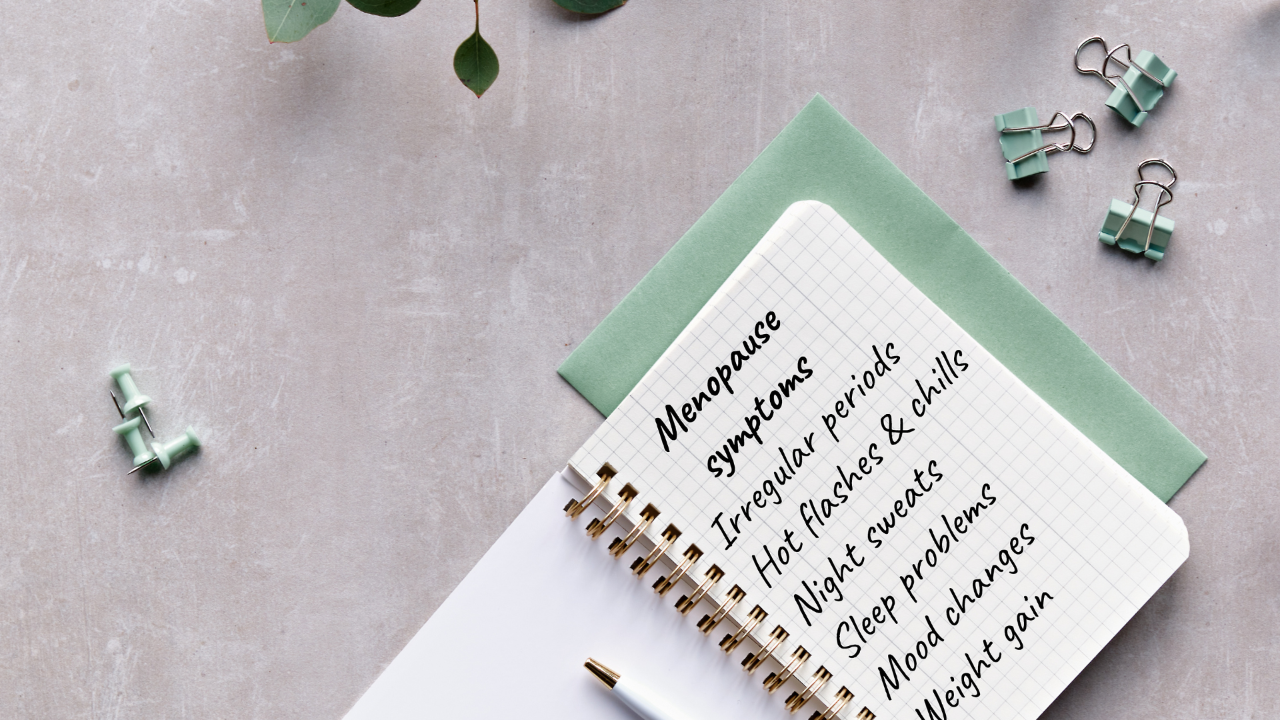Mastering Menopause

If you have a reproductive system, this one is for you! About half of the worlds population will experience Menopause on different levels at a point in their life. It is extremely important that we talk about it and share our knowledge to help each other understand what it is and how to navigate it.
Let’s define menopause: It is the time of life when a woman’s ovaries stop producing hormones and menstrual periods stop. A woman is said to be in menopause when she hasn't had a period for 12 months in a row.
The menopausal transition affects each woman uniquely and in ways that vary from woman to woman. The body begins to use energy differently, fat cells change, and women may gain weight more easily. There may be changes in your bone or heart health, your body shape and composition, or your physical function.
While consulting a physician is never a bad idea, as you may require treatments like hormonal therapy, vaginal estrogen, low-dose anti-depressants etc., there are also several things that can be done at home and daily that may prove to be very helpful in your comfort as your body transition and experiences menopause.
- For those cool / hot flashes - Dress in layers, have a cold glass of water or go somewhere cooler. Try to pinpoint what triggers your hot flashes - the triggers can include hot beverages, caffeine, spicy foods, alcohol, stress, hot weather and even a warm room.
- Strengthen your pelvic floor - Pelvic floor muscle exercises, called Kegel exercises, can improve some forms of urinary incontinence.
- Get enough sleep - Avoid caffeine and avoid drinking too much alcohol. Exercise during the day, not right before bedtime. If hot flashes disturb your sleep, you may need to find a way to manage them before you can get adequate rest.
- Exercise regularly - Get regular physical activity or exercise on most days to help protect against heart disease, diabetes, osteoporosis and other conditions associated with aging.
- Eat a balanced diet - Include a variety of fruits, vegetables and whole grains. and limit saturated fats, oils and sugars.
- Practice relaxation techniques - Techniques such as deep breathing, paced breathing, guided imagery, massage, yoga and progressive muscle relaxation may help with menopausal symptoms.
- Don't smoke - Smoking increases your risk of heart disease, stroke, osteoporosis, cancer and a range of other health problems. It may also increase hot flashes and bring on earlier menopause.
- Decrease vaginal discomfort - Try an over-the-counter, water-based vaginal lubricant or a silicone-based lubricant or moisturizer. Staying sexually active also helps with vaginal discomfort by increasing blood flow to the vagina.
Looking for someone to create an exercise program for you? I can help with that! Connect with me, I’d love to help navigate this with you through a curated exercise program suited to your level, goals and strengths.
